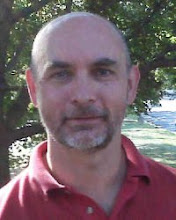Considering the context of this election (Washington DC) and the audience of the forum (social workers), there were no major surprises in any of the candidates' answers to the several questions offered by the three-person panel. Here are some thoughts on the event::
- This was a forum held in DC for a DC election. I had naively assumed that most attendees would be DC residents, eligible to cast their vote for one of the candidates. I was wrong. While no poll was taken, it was clear that a number of people in attendance were residents of either Maryland or Virginia, and that they merely worked for a DC government agency.
- Ernest Johnson, whose campaign literature refers to his as an "anointed campaign," seemed like a 2010 version of Marion Barry. He comes across as a friendly sort, but he seemed much more focused on attacking what he called the "Fenty-Gray administration" than with offering anything positive. His website pictures a smiling Johnson attending a "Say NO to Same-Sex Marriage" rally, and he favors a referendum to put this issue "to the people."
- Sulaimon Brown seemed ill-prepared and out of his league, so much so that I felt embarrassed for him. He apologized several times, saying that the notebook that contained his "research" had been stolen during a home break-in only hours before. But he seemed to lack even a basic understanding of issues, asking several times for questions to be repeated and for terms to be explained (e.g. "What's a BSW?" Answer: "Bachelor of Social Work").
- Leo Alexander is a polished and well-prepared candidate. He is articulate, thoughtful, and presents strong and reasonable arguments for his candidacy's platform -- arguments that might not be so well-received by some, because of his focus on "the root causes of poverty," including the breakdown of the African American family in DC. He had a facility with numbers and statistics, and seemed to have a systemic, "big picture" view of the interconnectedness of social problems that most social workers would subscribe to. He also had some concrete plans if elected, including a promise to hire an "army of social workers" to be involved in schools and other agencies, and build a single DC government complex to reduce the rent paid by agencies dispersed throughout the city. Two things, however, made me cross him off my list of possibilities:
- Immigration: his rhetoric on the high unemployment rates among African Americans in DC seemed pulled straight from Sarah P.'s playbook. The reason for such high rates? Undocumented or illegal (read Hispanic/Latino) immigrants are hired for unskilled labor and construction jobs at wages that are apparently too low for others;
- Same-Sex Marriage: not only does he not support DC's recently-enacted law extending the right of civil marriage to same-sex couples, he also favors a referendum to put this issue to the voters (despite the fact that there have been 3 judicial rulings saying that such a referendum cannot go forward, as it would be against the fundamental human rights provision of the DC Charter).
- Vince Gray found himself among a familiar and friendly crowd. He showed himself to be the seasoned politician he is, responding vociferously to Ernest Johnson's accusations about cronyism and no-bid contracts, but deflecting the accusations with the same low degree of specificity. He responded to questions directly, highlighted his experience and accomplishments, and came across as someone who can get things done.
- Perhaps my strongest disappointment was the lack of any discussion -- either initiated by a question or in a candidate's response -- about taxes and the city's finances. DC is among America's most expensive places to live and is among the top ten states when comparing the total tax burden on individuals. So much of the conversation seemed to be about ways in which DC government and its agencies could do more and more to solve problems, without any discussion about how much these "solutions" would further burden DC residents, not all of whom are K Street lobbyists.




No comments:
Post a Comment